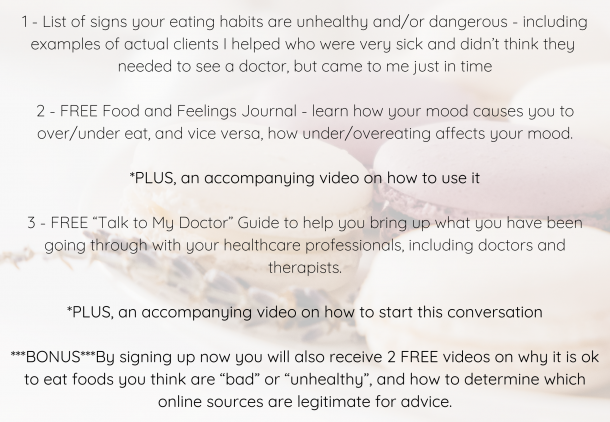By: Julia Trifan
Julia is currently a third year DPD student studying at Florida International University. When she’s not hitting the books, you can find her volunteering, reading, or traveling.
Self Destructive Coping Behaviors in ED Recovery
Eating disorder recovery has the tendency to expose room for growth in regard to a person’s own coping behaviors. Disordered eating in it of itself can be seen as a maladaptive coping mechanism. Being able to identify and develop healthier coping skills is an essential component of treatment and recovery.
Something that happens often in recovery is a fallback on exercise as a way to cope with letting go of food rules. Consider a hypothetical situation to better visualize what this can look like:
Sam is early in his recovery. Over time, he has been able to challenge his food rules and finds himself enjoying foods he once deemed as “bad”. However, he takes every opportunity to exercise- such as walking everywhere (even if it takes hours), having a strict gym regimen even on days that he has other things to do, and pushes his body on days he feels exhausted, or sick.
Sam represents many who have struggled with ED recovery and find excessive exercise as a way to manage their moods by either producing positive mood states, or by avoiding negative feelings associated with not exercising. When the reward center of the brain is stimulated, undesirable feelings and emotions are blocked. The brain becomes saturated with “feel-good” neurotransmitters as a result from stimulation (drugs, food, over-exercise, etc.), and in effect can create an easy pathway to “process-addiction” and dependency. Once this dependency is established, it can be difficult to take control of the wheel which is why getting help early and jumping ahead of these problems is so important.
Process addiction: addiction to the behavioral process of something, instead of to a substance.
Eating disorders and over-exercise are examples of process addictions.
It can be difficult to admit to yourself, let alone anyone else, that you have a problem.
Prioritizing self care and being gentle on yourself can be a huge step if you aren’t ready to seek help. An additional resource to consider is support groups.
One of the key elements that make support groups so beneficial is the peer support services they offer; comradery, acceptance, and understanding to name a few.
Furthermore, support groups help in learning to understand the implications of your condition as well as how to handle the roadblocks you may encounter while healing.
In addition to overcoming and stopping the addictive behaviors, it is crucial to address the root causes of these addictions and obsessive disorders to promote healing and establish the ability to cope with unsettling emotions. Individuals with addictions and eating disorders have the greatest chance of recovery with simultaneous treatment from a multidisciplinary treatment and support team.
Eating disorders of all kinds are challenging to overcome, but with the proper support, you can make a turn toward recovery and health.


References:
Bahji, A., Mazhar, M. N., Hawken, E., Hudson, C. C., Nadkarni, P., & MacNeil, B. A. (2019). Prevalence of Substance Use Disorder Comorbidity among Individuals with Eating Disorders: A Systematic Review and Meta-Analysis. Psychiatry Research.
Davis C, Woodside DB, Olmsted MP (2000), A study of anhedonia and excessive exercise in the eating disorders. Presentation at the 9th International Conference on the Eating Disorders. New York; May.
Holderness CC, Brooks-Gunn J, Warren MP (1994), Comorbidity of eating disorders and substance abuse review of the literature. Int J Eat Disord 16(1):1-34.


